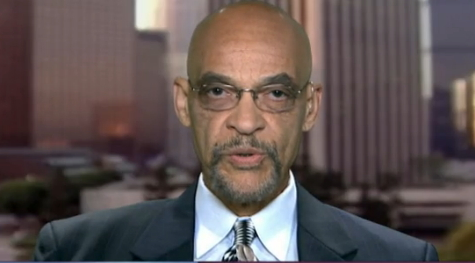Earl Ofari Hutchinson
Just why did California Governor Gavin Newsom draw voter fire? The short answer is two-fold. One, the GOP cannot, bar a miracle, win a statewide office in a state, California, where they are seen by some as seemingly on the verge of extinction. They make up barely a quarter of the state’s voters.
The other answer is that California is still by far the political national political jewel in the crown. It is the biggest, most populous, wealthiest state. It is the run-away trendsetter in social, cultural, and political affairs for the rest of the nation. Not exactly so goes California, so goes the nation, but close to it. The recall then is the only way the GOP has a prayer of gaining a statewide office. And what better one to try and snatch through the backdoor, than the governorship? The GOP can then muck up, roil, and skewer public policy in the state, and provide mountains of talking points for the media and the nation.
The recall though wasn’t totally a GOP Machiavellian manufactured plot. There were a whole lot of California voters who weren’t happy with certain things about Newsom. They weren’t all right-wing Republicans. The COVID pandemic was a trigger point. He got generally glowing marks from many quarters for his handling of it, with his shutdown order, the mandatory mask requirement, pressing for vaccines, and so on. However, as the business closings, and the pandemic dragged on, many started screaming that Newsom’s mandatory closure was crippling small and medium-sized businesses. There were marches, demonstrations, and lawsuits.
Then there were the perennial gripes that the GOP has hit every Democratic governor and state official with. That is, they give the company store away to illegal
immigrants. They outrageously hike taxes and spend taxpayer money like there’s no tomorrow. Many voters are always hyper-sensitive to crime issues. Newsom didn’t help his case with them when he announced there would be a unilateral moratorium on the death penalty on his watch.
Then there was the famed incident at a French restaurant with Newsom huddled in a private room with friends, many unmasked. At the same moment, he’d been on the soapbox for months demanding masks and avoidance of closed places such as restaurants. There was also the widespread perception that Newsom hob-knobbed a little too much with the rich, chic, and elite.
These were motivating even inflaming issues for many, and finally compelling enough to get the rare recall petition on the ballot. Newsom, though, would have been a ripe target even if he was the second coming of FDR. If the GOP could get the top state executive in a recall dogfight, it would serve to disrupt, distract, and even destabilize, that is gum up the political works in the nation’s leading Democratic state.
This would have colossal PR, media, and political value. A GOP governor stacking state boards and agencies with his appointees, proposing, and fighting with the state legislature on his/her initiatives and legislation, and having the nation’s most populated and richest state as a bully pulpit for his/her rightist views would be worth its weight in political gold. He/she would have one more hammer to hold over Democrats that would have immediate national consequences. They’d be able to appoint a U.S. Senator if 88-year-old Senator Diane Feinstein, due to health or age reasons, chooses to step down. This would immediately give the U.S. Senate back to the GOP.
No matter which way it went, the recall accomplished a prime GOP aim and that was to force the Democrats to raise tens of millions of dollars on the campaign, compel them to scramble and defend their record and caused much dissension and division
among California voters. That included many Democrats. They are asking about high taxes, soaring homelessness, and alleged rising crime and just what the Democrats are doing about it, other than taxing and catering to their corporate donors and backers.
The GOP banks on something else. Turnout. Democrats often do notoriously poor in turning out their base, Blacks, Hispanics, Asians, LGBT, and young persons in off-year elections stay home. The recall is the softest of soft off-year elections. Conversely, the GOP does marvelously well by comparison in mobilizing its base. They are whiter, older, conservative, rural, non-college-educated blue-collar workers, and small businesspersons. They will show up at the polls and often show up with enthusiasm. The recall was a near textbook example of that. Polls showed that the GOP base was fired up about the possibility of chasing Newsom from the governor’s chair.
The massive gap in the number of Democratic voters versus the GOP’s voters is two to one. But that’s just numbers on paper. Unless those numbers could be translated into a Democratic stampede to the polls, they were meaningless. This was a worrisome issue for Democratic state organizations, and they implored Democrats through floods of emails, appeals, and articles of the danger of a right-wing GOPer running the Capitol show. They implored Democrats to get their ballots stamped “no” in big numbers.
The recall, then, was more than just about getting rid of a Democratic governor. It reflected the deep polarization, and non-stop near irreconcilable power fight between the GOP and the Democrats over the law, public policy, and governance in America. Newsom just happened to be the latest casualty of that titanic struggle.
Earl Ofari Hutchinson is an author and political analyst. He is the author of I’m Mad as Hell—Making Sense of the California Recall (Hutchinson Ebooks)
He is the host of the weekly Hutchinson Report on KPFK 90.7 FM Los Angeles and the Pacifica Network. His weekly political commentaries can be found at thehutchinsonreport.net

